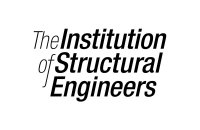This course explains how laboratory test results are used in the design process, with some worked examples. The course is based on the BS5930: 2015 Code of practice for site investigations, and HD 22/08 Managing Geotechnical Risk and BSEN 1997-1 & 2 (Eurocode EC7 Parts 1 & 2).
Ground investigation and subsequent interpretation and use of the data in design is an essential part of any construction project. The objectives of a ground investigation must be clearly defined according to the nature of the project and its site.
The way in which laboratory samples are processed to provide data for design requires an understanding of how tests are carried out and the way in which the design will be carried out.

Approved by The Geological Society
This course is part two in a series of two courses which can be taken together or separately;
see also: Ground Investigation 1 - The Ground Investigation Report.
Aims & Objectives:
The course aims to give civil engineers, geotechnical engineers, engineering geologists and anyone who plans, specifies and carry out or supervise ground investigations and geotechnical designs a practical understanding of the processes. The course will explain methods used for carrying out laboratory tests and how the design process makes use of the data, the importance of Quality Control and the Geotechnical Design Report.
Course Outline:
- Laboratory Testing
- Waste Classification Testing
- The Factual Report (GIR)
- Derivation of soil characteristics for design
- Application of characteristics to design
- Particular design parameters required for the design of:
- Foundations
- Earthworks – cuttings, fills including reinforced fills
- Retaining walls and abutments
- Piles and Anchors
- Supervision of the works and testing required during and after construction
- The contents of the Geotechnical Design Report (GDR)
Mode of Delivery:
The course will be delivered through:
- Presentation on the basic principles on each topic
- Interactive exercises following each topic
- Open discussion
- Feedback Activity
Benefits of Attending:
On completion of this course, delegates will be able to:
- Understand how laboratory tests are carried out and the limitations of the tests
- Carryout basic interpretation of laboratory tests for geotechnical design
- Understand the requirements for testing soils classified as waste,
- Determine the reusability of excavated materials for reuse as fill.
- Understand basis of geotechnical design to BSEN 1997-1
- Understand which soil parameters are required for the design of:
- Spread Foundations
- Piles and Anchors
- Earthworks – cuttings, fills including reinforced fills
- Retaining walls and abutments.
- Understand the principles of site Quality Control and the completion of the Geotechnical Design Report.
Intended For:
Geotechnical engineers/engineering geologists and anyone who either carryout geotechnical designs or specify the work to be carried out by others.
Testimonials – what our clients say...
Placement Student, RPS GroupThis course furthered my geotechnical knowledge and how to interpret results.
Senior Associate Structural Engineer, RPS GroupThe course was theory heavy, but the interpretation of site investigation and lab tests application to foundation design or retaining wall design is very useful - especially the importance of using the correct input values for software.








